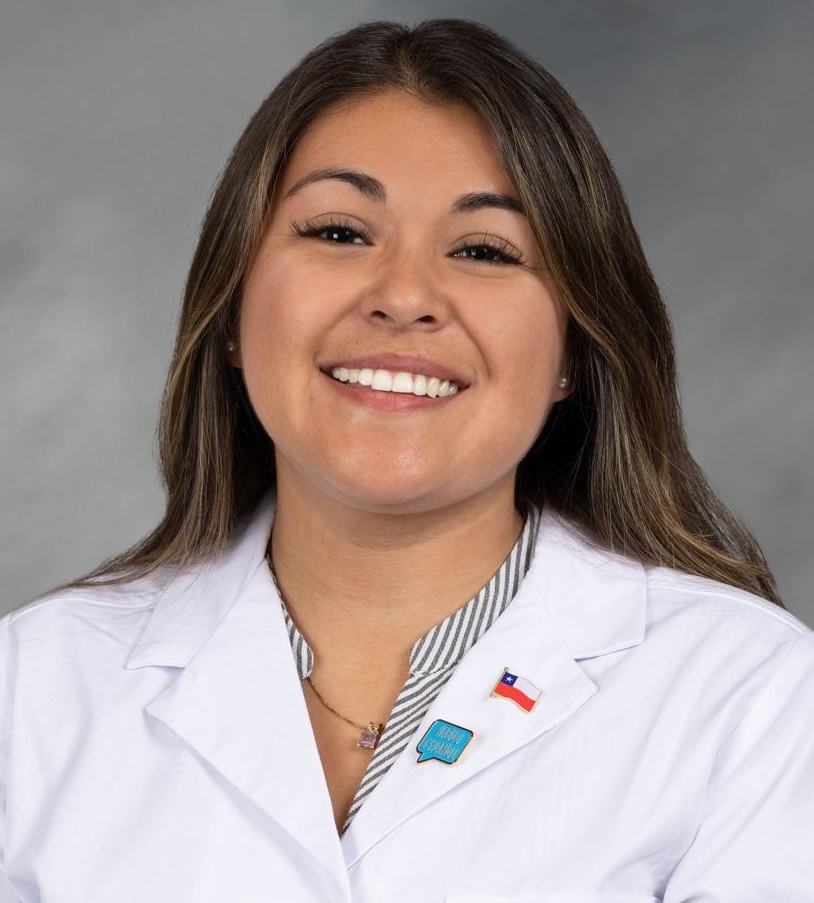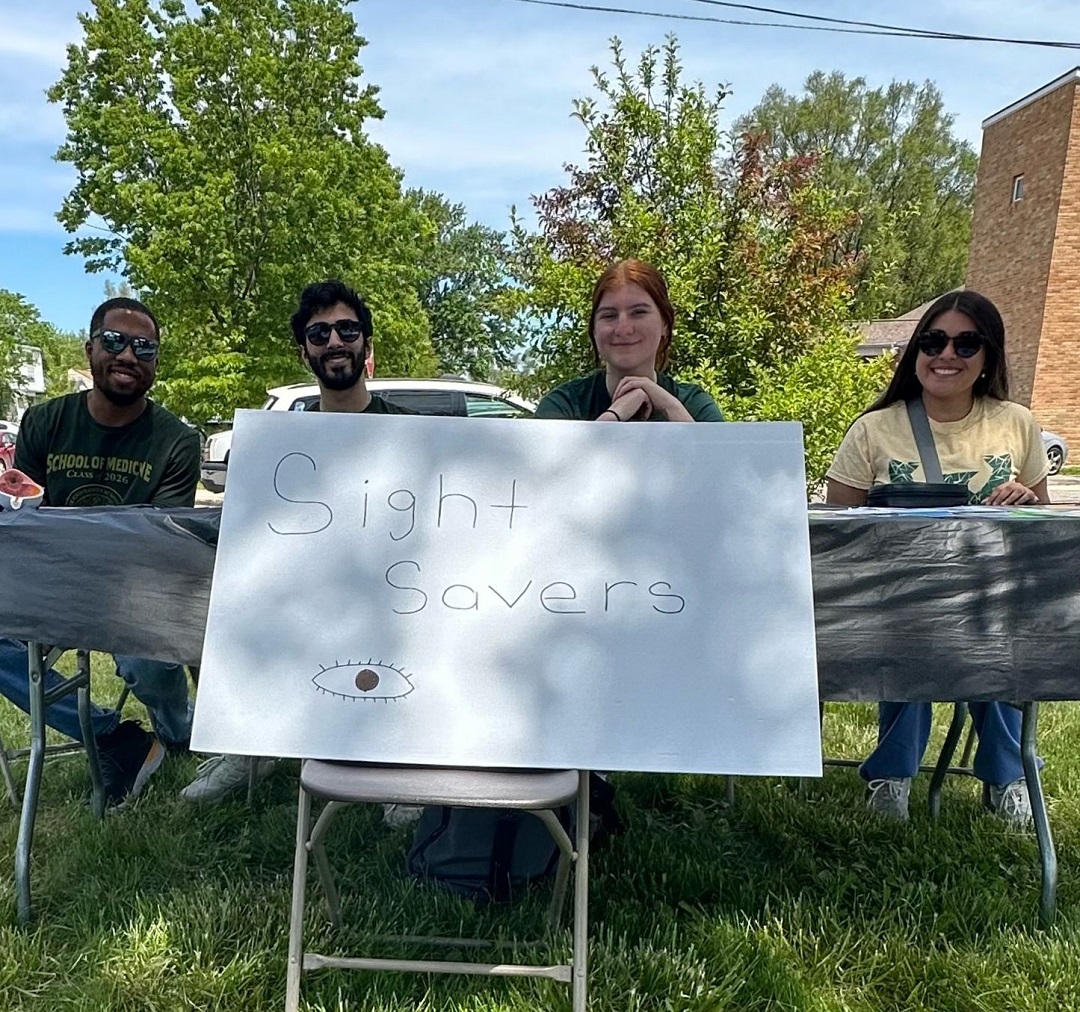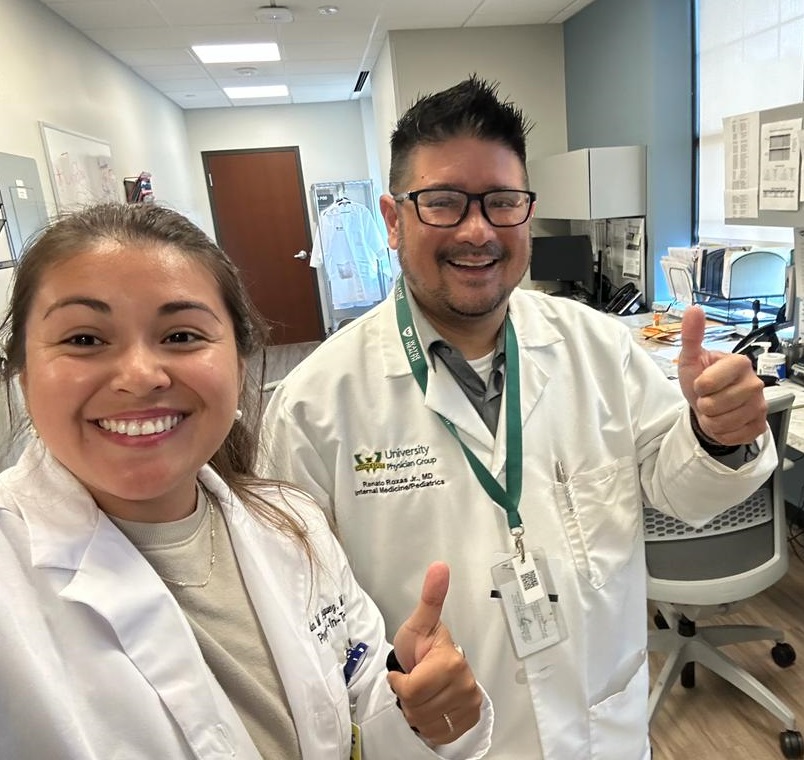Wayne State University School of Medicine student Tannia Rodriguez was born in Temuco, Chile, and lived the first nine years of her life in the country’s Araucania region before moving to the United States, settling in metropolitan Detroit. 
Rodriguez earned both her bachelor’s and master’s of science degrees from Wayne State University. She is in her second year of medical school, and would like to be an ophthalmologist.
She has regularly volunteered with the Latin Medical Student Association/Amigos Medicos Clinic and Sight Savers since starting at the School of Medicine in 2021.
“Both of these initiatives allow me to expand my clinical skills while serving Spanish-speaking communities. As a native Spanish-speaking individual, being able to build trust through language-concordant care among the community is inspiring and motivates me to continue on this path to serve Spanish-speaking communities as a future physician,” she said.
Question: Why is celebrating and recognizing Hispanic heritage important to you?
Answer: From Sept. 15 to Oct. 15, Hispanic Heritage Month celebrates the contributions that Hispanic/Latino individuals have made across the globe. It is important, as by celebrating culture, history and achievements of those who came before us, we can inspire future generations. In medicine, where Latino physicians remain in the single digit percentages when looking at the workforce, it is motivating to learn about the work they may have done, as it serves as a reminder that I, too, can similarly achieve great things. Hispanic Heritage Month is also a valuable time to build community, as many Hispanic/Latino countries celebrate their independence during this time.

Q: Can you share your heritage and what it means to you?
A: I was born in Chile and lived there for the first nine years of my life. My Chilean heritage shapes my values, traditions and aspirations. It motivates me to continue working toward a career in medicine, as one day I can treat Spanish-speaking patients in the language they are most comfortable with – something that has not always been an option for my family.
Q: How has your involvement in LMSA/Amigos Medicos and other affinity groups shaped your journey as a medical student?
A: I have had the opportunity of working with LMSA/Amigos Medicos since I was in my undergraduate years at WSU. Vision Detroit, a community outreach vision screening initiative led by Professor of Ophthalmology, Visual and Anatomical Sciences Anju Goyal, M.D., introduced me to the LMSA/Amigos Medicos community and was also my first meaningful clinical experience. Our work providing vision-saving care and patient education to the metropolitan Detroit community illuminated the many venues for helping the community one can engage in as a physician. I am also in the American Academy of Ophthalmology and Association of University Professors of Ophthalmology’s Minority Ophthalmology Mentoring Program, or MOM, which aims to increase diversity in Ophthalmology. Dr. Goyal encouraged me to apply for the program's inaugural class in 2016, and since then, I have been fortunate to benefit from the program’s mentorship, networking opportunities, in-person lab sessions and encouraging workshops. The MOM program has taught me the importance of community, research and advocacy to improve health outcomes. As a future health care provider, I am honored to have the opportunity to positively contribute to the health of patients in various forms.
Q: Why did you choose Wayne State University for medical school?
A: I chose to study at the Wayne State University School of Medicine due to its deep commitment to the serving the community through curriculum-incorporated clinic and outreach efforts, the opportunity to engage in research with quality mentors who value my input and care about my success, and the chance to return to Michigan to be close to family. Since starting, I have been lucky to have joined a community that offers much more than that – I have made meaningful friendships, connected with new mentors/coaches and each day grow more in this career.

Q: What is your favorite part of the Warrior M.D. community?
A: My favorite part about the Warrior M.D community is our early clinical exposure. In addition to our block service-learning requirements, which are fulfilled by volunteering in clinic, second-year medical students participate in a pre-clerkship course. Through this course, students are able to get acquainted with the clinical setting for nearly a year before starting clerkship rotations during third year. Having the opportunity to work with Assistant Professor Renato Roxas, M.D., during my Internal Medicine pre-clerkship has been an inspiring way to learn about optimal patient care, building rapport and trust with each patient, and the many resources available to educate the community we serve so they can be better advocates of their health.